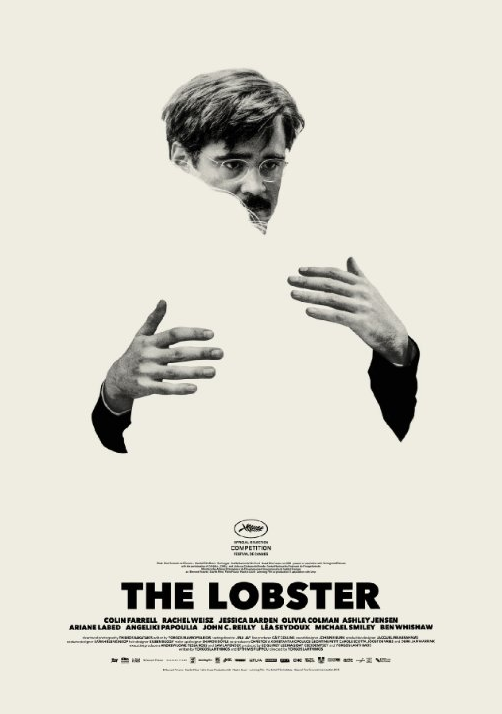film review: the lobster
What will most likely draw audiences to The Lobster is its gimmick. The protagonist, David (Colin Farrell), is sent to a dreary hotel where he has forty-five days to select a life partner, or he will be turned into the animal of his choosing (a Lobster). The world that writers Yorgos Lanthimos and Efthymis Filippou have set up is consistently strange, which contrasts well against the gloomy backdrop and the monotonous line delivery. And while it’s the strangeness of the film that will draw audiences in, it’s the exploration of relationships and cultural conformity that will keep the viewer thinking long after the film ends.
In this alternate reality, there are two strong opposing forces. The first is one of strict monogamy. By law one must be married, and the key to finding the right partner is based on finding one common shared trait. The examples of this used in the film (frequent nosebleeds, short-sightedness, etc.) will seem ridiculous to anyone who has even tried dating—personal interests, aspirations, and even a sense of humour are completely absent from the process. Sexual ambiguity is also ruled out. Obviously, polyamory and asexuality are out of the question, but so is bisexuality and gender fluidity, as the character must choose only one gender preference, male or female, before staying at the hotel. The world of The Lobster is essentially one of Western relationship culture taken to the extreme. It is no longer just expectations to conform to it, but regulations and laws enforcing it.
The Loners are the opposing force, and like many rebellious counter-cultures, their ideology is in strict opposition to the mainstream. Masturbation and non-sexual communications are okay, but relationships and flirting are unacceptable. Loners are required to dig their own graves, for both practical and symbolic purposes, as there’s no one who will care enough to bury you when you die. It’s unsurprising that neither the mainstream, nor the counter-culture, seem to satisfy anyone in the film, despite the continuous relationship propaganda and threats of violence to conform. Without the freedom of choice, the characters remain dull and passionless, with the exception of David and the Short-Sighted Woman (Rachel Weisz) as their relationship starts to unfold. But even when they attempt to live outside the two cultures, they’re still subliminally subject to the ideas of relationships that have been thrust upon them their whole lives.
While there is no shortage of strong female characters in the film, their roles are questionable. The lead representatives of the mainstream and the counter-culture are both women (Olivia Colman and Léa Seydoux respectively), and while neither of these two cultures are matriarchal on a familial level, it’s clear that the rules of sex and relationships are dictated and enforced by women, and ones with debatable levels of empathy and compassion. Another character, named Heartless Woman (Angeliki Papoulia), is clearly a psychopath. Though it should be taken into account that few characters, male or female, are really sympathetic to the viewer. Again, David and the Short-Sighted women are the only characters with enough personality to elicit feeling from the audience.
The Lobster is not a film I would recommend to everyone. Deadpan humour can be an acquired taste, and there were certain scenes of comedic violence that were hard to digest, particularly involving animals. But while the film takes its gimmicky strangeness to extremes, it is not just ridiculous for the sake of ridiculousness—there is an intent behind it. It casts a blazing light onto our culturally-Western expectation of relationships, and ridicules it.
The film ends abruptly and unresolved. There is no major shift in the world, or an easy third option that solves everyone’s problems, but this too serves a purpose. The Lobster’s intent is not to preach to its audience, or to give them an easy solution to the love problem. Rather, it demonstrates that nobody can truly live up to the standards their culture places upon them, or the standards they place upon themselves. The Lobster is a film that entertains on the surface, but also leaves the viewer speculating about their own perceptions of romantic relationships, and for that, the film has merit.


